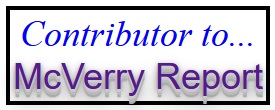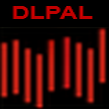How general market conditions affect industry/sector momentum ?
#3 – Sector Momentum – Rotational System
Authors: Huhn
Title: Industry Momentum: The Role of Time-Varying Factor Exposures and Market Conditions
Link: http://papers.ssrn.com/sol3/papers.cfm?abstract_id=2650378
Abstract:
This paper focuses on momentum strategies based on recent and intermediate past returns of U.S. industry portfolios. Our empirical analysis shows that strategies based on intermediate past returns yield higher mean returns. Moreover, strategies involving both return specifications exhibit time-varying factor exposures, especially the Fama and French (2015) five-factor model. After risk-adjusting for these dynamic exposures, the profitability of industry momentum strategies diminishes and becomes insignificant for strategies based on recent past returns. However, most strategies built on intermediate past returns remain profitable and highly significant. Further analyses reveal that industry momentum strategies are disrupted by periods of strong negative risk-adjusted returns. These so-called momentum crashes seem to be driven by specific market conditions. We find that industry momentum strategies are related to market states and to the business cycle. However, there is no clear evidence that industry momentum can be linked to market volatility or sentiment.
Notable quotations from the academic research paper:
"Our empirical results indicate that momentum strategies based on industry portfolios are profitable within the U.S. Moreover, in line with Novy-Marx (2012), strategies based on intermediate past returns from months twelve to seven exhibit higher returns than strategies based on recent past returns from months six to two prior to portfolio formation. However, when using alternative formation periods for intermediate past returns, our results do not support the hypothesis of momentum being an “echo” in returns.
Our paper seeks to determine whether industry momentum strategies based on recent and intermediate past returns exhibit time-varying factor exposures in the U.S. We therefore apply different factor models and examine which model best explains industry momentum returns. Our results indicate that for both return specifications, industry momentum strategies exhibit time-varying factor exposures, especially using the FF (2015) five-factor model. Hedging these time-varying factor exposures diminishes the outperformance of industry momentum strategies.
To the best of our knowledge, no study so far has analyzed the relation between market conditions and industry momentum strategies based on both recent and intermediate past returns. Giving additional scrutiny to this research area, we examine whether industry momentum strategies are also disrupted by periods of strong negative returns. Our empirical analyses reveal that industry momentum strategies based on both return specifications experience periods with large negative risk-adjusted returns. Moreover, these so-called momentum crashes seem to be driven by specific market conditions. We find that industry momentum strategies are related to market states and are thus only profitable following “UP”-markets. We do not find positive and significant risk-adjusted returns following “DOWN”-markets, regardless of market transitions. These results support behavioral explanations as the source of the profitability of industry momentum strategies. Dividing both recessions and expansions into two halves, our results indicate that most strategies exhibit positive and significant risk-adjusted returns only during the second half of an expansion. Finally, our findings do not support the notion that industry momentum strategies are related to market volatility or investor sentiment."
Are you looking for more strategies to read about? Check http://quantpedia.com/Screener
Do you want to see performance of trading systems we described? Check http://quantpedia.com/Chart/Performance
Do you want to know more about us? Check http://quantpedia.com/Home/About
Share onLinkedInTwitterFacebookRefer to a friend
























